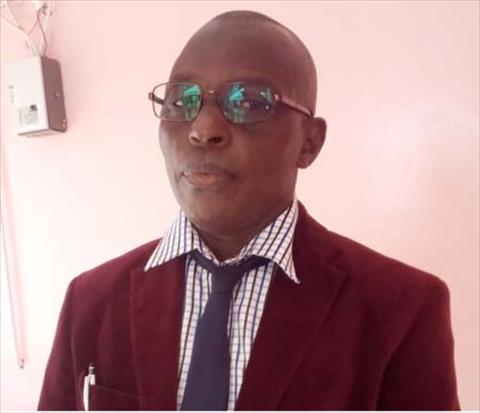Adama Jallow, National Coordinator for The Gambia Center for Victims of Human Rights Violation has said that Transitional Justice is not for some but rather for all.
Mr Jallow made these remarks on Thursday during a national stakeholders consultation workshop on transitional justice process in The Gambia under the theme ‘strengthening partnership to promote an inclusive and informed victim-centered participation in transitional justice process’ in The Gambia.
The objective of the consultative meeting funded through the NED Project Fund was to solicit the views of stakeholders regarding the ongoing transitional justice processes and to have a better understanding of the processes, about the effective participation of victims, CSOs and other relevant stakeholders in the transitional justice processes in The Gambia.
The meeting seeks to create a forum for consultation and dialogue, which will strengthen the inclusive and informed victims’ center participation in the transitional justice process as well as identify challenges and gaps concerning inclusive and informed victims center participation in the transitional justice process and ultimately generate recommendations on inclusive and informed victims’ center participation in the transitional justice process in The Gambia.
National Coordinator Jallow highlighted that transitional justice is a process that will allow Gambians to heal.
“Internal wounds are no less wounds, because they are not visible”, he stated, adding: “on the contrary, sometimes those wounds need even more attention and care”.
He further said that sometimes, healing starts from the inside to manifest on the outside, noting that, similarly The Gambia’s wounds are deep and are often not visible to the naked eye.
According to him a closer look yields a society that needs care for its healing to manifest other aspects of Gambian society.
He said this healing starts with Government willing to employ transitional justice mechanism’s for the betterment of its people.
“Transitional justice process is a powerful way to create unity after mass and systematic violation of fundamental human rights”, he went on, saying an inclusive and informed victim centered transitional justice process can serve as common platforms for trust-building and the development of a new social contract for the future.
He remarked that The Gambia is faced with numerous pressing challenges after 22 years of dictatorship, gross abuses and violations of human rights.
“A transitional justice approach recognizes the need to gain acceptable level of justice for victims and to reinforce the possibilities for peace, democracy and reconciliation in order to prevent recurrence of future violence”, he also said, adding: “in opting for transitional justice, The Gambia is not seeking extraordinary forms of justice but justice which considers the informed and inclusive victims centered approach”.
Eric Bizimana, in representing IHRDA said victims need to be at the center of the transitional justice process adding that it is important findings and recommendations of the TRRC befit victims as well as ensure perpetrators are prosecuted and punished.
He added that there is also need for vetting institutions that participated in human rights violation.






